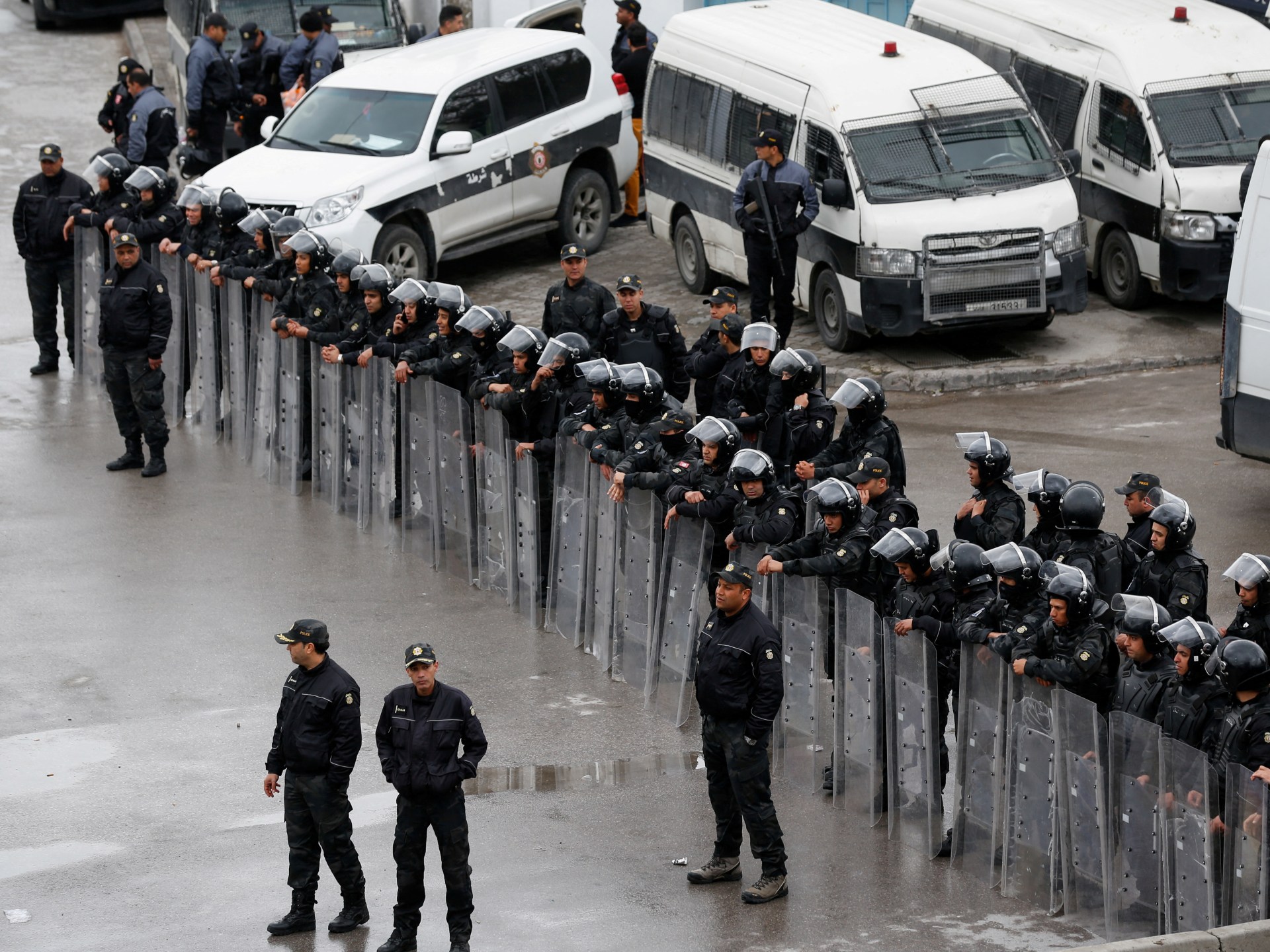The United Nations High Commissioner for Human Rights, Volker Türk, condemned - on Tuesday - "increasing repression" in Tunisia, following a wave of arrests targeting prominent politicians and other personalities, while Tunisian President Kais Saeed accused some detainees of being responsible for food shortages and high prices in the country.
In remarks conveyed by his spokesman, Jeremy Lawrence, during a press briefing in Geneva, Türk expressed his concern about "the increasing crackdown on political opponents and civil society in Tunisia."
"We are also concerned that some detainees have been tried before military courts because of their criticism of the government," he added, calling on the Tunisian authorities to "immediately stop trying civilians before military courts."
The UN Commissioner also called on the authorities in Tunisia to "respect the standards of legal procedures and a fair trial and immediately release all those arbitrarily detained," including anyone detained for exercising their freedom of opinion or expression.
For his part, the new Tunisian Foreign Minister, Nabil Ammar, rejected these criticisms, and considered them "hasty and inaccurate."
"The statements of some foreign authorities regarding the recent arrests are hasty, inaccurate, and untrue, and affect the independence of the Tunisian judiciary," he said in a statement to the "Tunis Afrique Press" agency.
The Tunisian minister added that the recent arrests were due to "serious issues related to national security" of the Tunisian state, and had nothing to do with political, human rights, or media activity.
Said's first comment
In the Tunisian president's first comment on the wave of arrests carried out by the police a few days ago, Saeed accused some of the detainees of being responsible for "food shortages and high prices," vowing to move forward with the same force and determination to "cleanse the country."
Saeed said, "The recent arrests showed that a number of criminals involved in conspiring against the internal and external security of the state are behind the crises of food distribution and raising their prices."
He also called - in a meeting with the new Minister of Commerce, Kulthum bin Rajab - whom he described as "honorable judges" to take appropriate decisions against "traitors who seek to fuel the social crisis."
Last Monday, Tunisian security arrested both the leader of the Ennahda movement, Noureddine al-Behairi, the former Minister of Justice, Noureddine Boutar, director of "Mosaique" radio station, and the political activist, Zahr al-Akrami.
For its part, the Tunisian Ennahda movement condemned the arrest of a number of opponents and media professionals in the country, warning of the expansion of kidnappings and systematic abuse by the authorities, as described.
In the context, Dalila Ben Mubarak, Boutar's lawyer, director and owner of Mosaique Radio, said that her client was questioned about his radio station's financing and editorial policy, including how to select analysts and guests.
The head of the Tunisian Journalists Syndicate, Mehdi Jelassi, described the matter as "dangerous," adding that the authorities' message to journalists "who do not enter a house of obedience is that this will be your fate."
Despite President Saeed's repeated assurances of the independence of the judicial authorities, his opponents accuse him of using the judiciary to prosecute those who reject exceptional measures that began to be imposed on July 25, 2021, which led to an ongoing severe political crisis.
The most prominent of these measures, which Saeed described as "necessary and legal" to save the state from a "total collapse", included: dissolving the Judicial Council and Parliament, issuing legislation by presidential decrees, approving a new constitution through a referendum in July 2022, and holding early legislative elections in December. the past.

